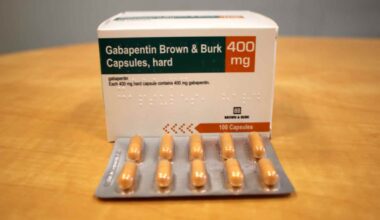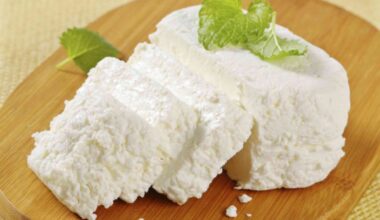When it comes to yogurt, Chobani has become a household name for its delicious taste and wide range of flavors. But beyond its mouthwatering appeal lies a treasure trove of essential nutrients. Understanding the Chobani yogurt nutrition label can help you make informed choices, ensuring you savor every spoonful while benefiting your overall health. In this article, we will explore the key components of the Chobani yogurt nutrition label and shed light on its nutritional value.
related article; Twisted Tea Nutrition
Calories and Serving Size – (Chobani yogurt nutrition label)
Let’s start by understanding the serving size and calorie content. A typical Chobani yogurt serving size is 150 grams, which provides an average of 130 calories. This makes it a satisfying yet reasonable option for those watching their calorie intake.
Protein – The Powerhouse Nutrient
Protein is a vital nutrient that helps build and repair tissues, supports muscle growth, and regulates various bodily functions. Chobani yogurt packs a protein punch, with an average of 12 grams per serving. This makes it an excellent option for individuals seeking to increase their protein intake or support their active lifestyle.
Protein is particularly crucial for those who engage in regular physical activity or are looking to maintain a healthy weight. When you consume protein, your body breaks it down into amino acids, which act as building blocks for various body tissues, including muscles, organs, and skin. Additionally, protein can also help regulate hunger hormones, keeping you feeling fuller for longer and reducing unhealthy snacking.
Carbohydrates – Including Sugars and Fiber
The Chobani yogurt nutrition label lists total carbohydrates, which include both sugars and dietary fiber. On average, a 150-gram serving contains around 17 grams of carbohydrates. Out of these, approximately 13 grams are naturally occurring sugars, while the remaining 4 grams are dietary fiber.
It’s essential to note that while added sugars can be detrimental to health, naturally occurring sugars in yogurt come from lactose, a natural sugar found in dairy products. Lactose is a type of carbohydrate that is broken down and absorbed by the body to provide a source of energy. However, if you are concerned about sugar intake, consider opting for plain or low-sugar varieties of Chobani yogurt.
On the other hand, dietary fiber is a crucial component of a healthy diet. It aids in digestion, helps maintain bowel regularity, and may contribute to a reduced risk of certain chronic diseases, such as heart disease and type 2 diabetes. While the fiber content in Chobani yogurt may not be as high as in some fruits and vegetables, it still contributes to your daily fiber intake.
The Good, the Bad, and the Balance of Fats(Chobani yogurt nutrition label)
Chobani yogurt strikes a good balance between fats, with minimal saturated fats and a good amount of healthy unsaturated fats. A typical serving contains around 3 grams of total fat, out of which 2 grams is saturated fat. The rest consists of heart-healthy monounsaturated and polyunsaturated fats.
While it’s important to moderate saturated fat intake as part of a heart-healthy diet, it’s equally crucial to include unsaturated fats in your meals. Unsaturated fats, especially omega-3 and omega-6 fatty acids, play a crucial role in brain function, supporting heart health, and reducing inflammation in the body.
Calcium – Building Strong Bones
Calcium is necessary for the preservation of strong bones and teeth. Chobani yogurt is a fantastic source of calcium, providing about 15% of the daily recommended intake in just one serving. Incorporating Chobani yogurt into your diet can be particularly beneficial for individuals at risk of osteoporosis or those looking to strengthen their bones.
Calcium is not just important for bone health; it also plays a role in nerve transmission, muscle function, and hormone secretion. For those who may be lactose intolerant or prefer non-dairy options, Chobani also offers plant-based yogurt alternatives made from almond milk or coconut milk that are fortified with calcium.
Probiotics – Gut-Friendly Bacteria
One of the key factors that set Chobani yogurt apart is its probiotic content. Probiotics are live bacteria and yeasts that promote gut health and support the digestive system. Live and active cultures including Lactobacillus acidophilus and Bifidobacterium are found in Chobani yogurt, which helps support the maintenance of balanced gut flora.
The gut microbiome is a diverse ecosystem of microorganisms that reside in our digestive tract. It is essential for healthy digestion, nutrient absorption, immune system performance, and even mental well-being. Probiotics help maintain a healthy balance of beneficial bacteria in the gut, reducing the risk of digestive issues, such as bloating, gas, and constipation.
Consuming probiotic-rich foods, like Chobani yogurt, may also help support the immune system by enhancing the body’s natural defenses against harmful pathogens. Additionally, some research suggests that probiotics might play a role in reducing inflammation and supporting mental well-being.
Vitamins and Minerals
Apart from calcium, Chobani yogurt is also a source of other essential vitamins and minerals. These include riboflavin (Vitamin B2), phosphorus, and potassium. Riboflavin plays a crucial role in energy metabolism, while phosphorus and potassium contribute to various physiological functions.
Vitamin B2 is a water-soluble vitamin that helps convert food into energy and acts as an antioxidant to protect the body from oxidative stress. Phosphorus, along with calcium, is essential for bone health and also plays a role in cell repair and growth. Potassium is crucial for maintaining proper fluid balance, muscle function, and nerve transmission.
Conclusion

The Chobani yogurt nutrition label reveals that this dairy delight is more than just a delicious treat; it is a nutrient-packed powerhouse. With its high protein content, probiotics, calcium, and a balanced combination of fats, Chobani yogurt offers a wide array of health benefits.
Incorporating Chobani yogurt into your daily diet can aid in weight management, support muscle health, promote digestion, and contribute to strong bones. However, it’s essential to be mindful of portion sizes and opt for plain or low-sugar varieties if you are watching your sugar intake.
So, the next time you reach for a cup of Chobani yogurt, know that you’re not just indulging in a delightful treat but also nourishing your body with valuable nutrients. Enjoy the creamy goodness guilt-free, knowing that your taste buds and your health will thank you for it! Remember to pair your yogurt with a balanced and varied diet for overall health and wellness.
read more here;
Weight Gain or Weight Loss: The Real Effects of Spironolactone






